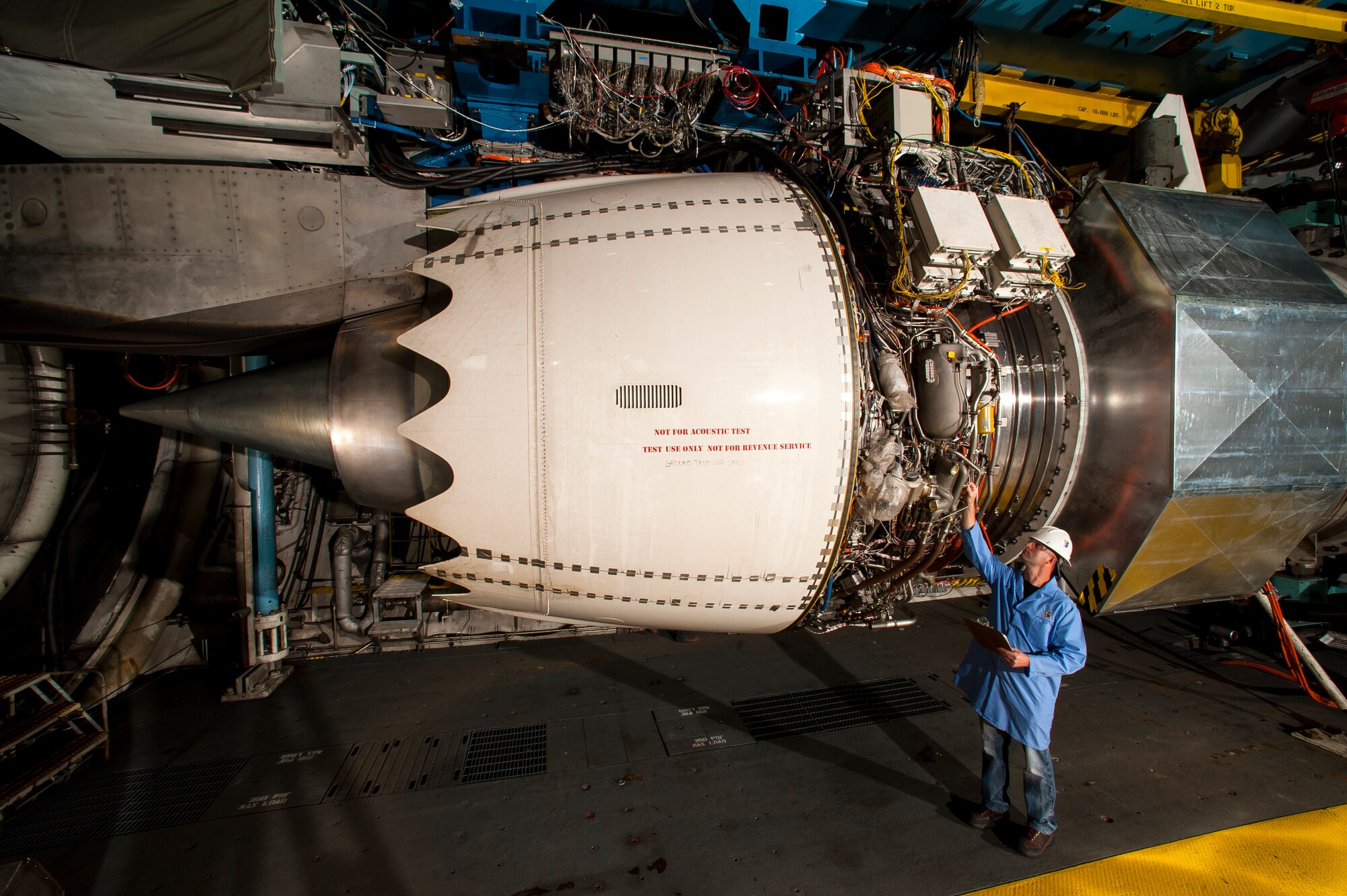EN 2282 Engine Stress Screening Testing
The EN 2282 standard is a critical aspect of engine performance testing in the aerospace and aviation sectors. This test ensures that propulsion systems are subjected to stress conditions that replicate real-world operational environments, thereby identifying any potential defects or weaknesses early on in production.
Engine Stress Screening (ESS) tests are conducted on aircraft engines before they enter service. The purpose is to identify potential manufacturing flaws, material imperfections, and design issues that could lead to catastrophic failures during flight. By subjecting the engine components to stress conditions beyond their expected operational load, engineers can assess the durability and reliability of the propulsion system.
The EN 2282 standard provides a framework for conducting these tests in an efficient and standardized manner. It specifies the test methods, environmental conditions, and acceptance criteria that must be followed to ensure accurate and reliable results. This ensures consistency across different testing facilities and manufacturers, which is crucial for maintaining high standards of quality and safety in the aerospace industry.
During ESS tests, engines are exposed to a series of stress cycles, including thermal cycling, mechanical loading, and vibration. These conditions simulate the extreme environments that engines might encounter during flight, such as temperature variations, fuel surges, and high-speed rotations. The testing process involves monitoring various parameters, including temperature, pressure, and rotational speed, to ensure that the engine performs within acceptable limits.
Once the tests are complete, the results are analyzed to determine whether the engines meet the specified criteria outlined in EN 2282. If any issues are identified, corrective actions can be taken before the engines are released for use. This not only enhances safety but also ensures that manufacturers adhere to stringent quality control standards.
The aerospace industry places a high premium on reliability and performance, making ESS testing an essential step in ensuring that propulsion systems meet the rigorous demands of aviation operations. By adhering to the EN 2282 standard, manufacturers can demonstrate compliance with international regulations and build trust with airlines and regulatory bodies.
Moreover, ESS tests play a crucial role in the research and development phase of new engine designs. Engineers use these tests to refine their design processes, optimize material selection, and improve overall performance. This continuous improvement process is vital for staying ahead of industry trends and meeting evolving safety standards.
Applied Standards
| Standard | Description |
|---|---|
| EN 2282-1 | Test methods for engine stress screening. |
| ISO/TC 20/SC 29 | International standards related to aerospace propulsion systems. |
| American Society for Testing and Materials (ASTM) | Materials testing methods applicable in engine stress screening. |
Benefits
The benefits of EN 2282 Engine Stress Screening Testing extend beyond mere compliance with international standards. It offers a range of advantages that contribute to the overall safety and reliability of aerospace propulsion systems:
Enhanced Reliability: By identifying potential defects early in production, ESS testing ensures that only reliable engines enter service. This reduces the risk of failure during critical flight operations.
Increased Safety: The real-world stress conditions simulated in these tests help prevent accidents caused by undetected flaws or design imperfections.
Cost Savings: By detecting issues early, ESS testing helps avoid costly repairs and replacements after the engines have been deployed. It also reduces downtime for maintenance and ensures that assets are available when needed.
Regulatory Compliance: Adhering to EN 2282 standards ensures that manufacturers meet regulatory requirements set by aviation authorities worldwide, thereby reducing potential penalties and enhancing reputation.
Improved Product Quality: ESS testing provides valuable insights into the performance of new engine designs. This data can be used to refine manufacturing processes and improve overall product quality.
Why Choose This Test
The EN 2282 Engine Stress Screening Testing is a vital component of the aerospace industry's commitment to safety, reliability, and regulatory compliance. Here are several reasons why this test stands out:
Reputation and Trustworthiness: By choosing ESS testing, manufacturers can demonstrate their dedication to quality and excellence. This builds trust with airlines, passengers, and regulatory bodies.
Rigorous Testing Criteria: The EN 2282 standard sets stringent criteria for stress screening tests, ensuring that only the most robust engines pass inspection.
International Recognition: Compliance with this standard is recognized globally and can enhance a company's reputation on an international scale.
Advanced Testing Facilities: Our facility offers state-of-the-art testing equipment and expertise, providing accurate and reliable results that meet the highest industry standards.
Dedicated Technical Support: Our team of experts is committed to ensuring that every aspect of the test process meets the required specifications. We provide technical support throughout the entire testing cycle.





